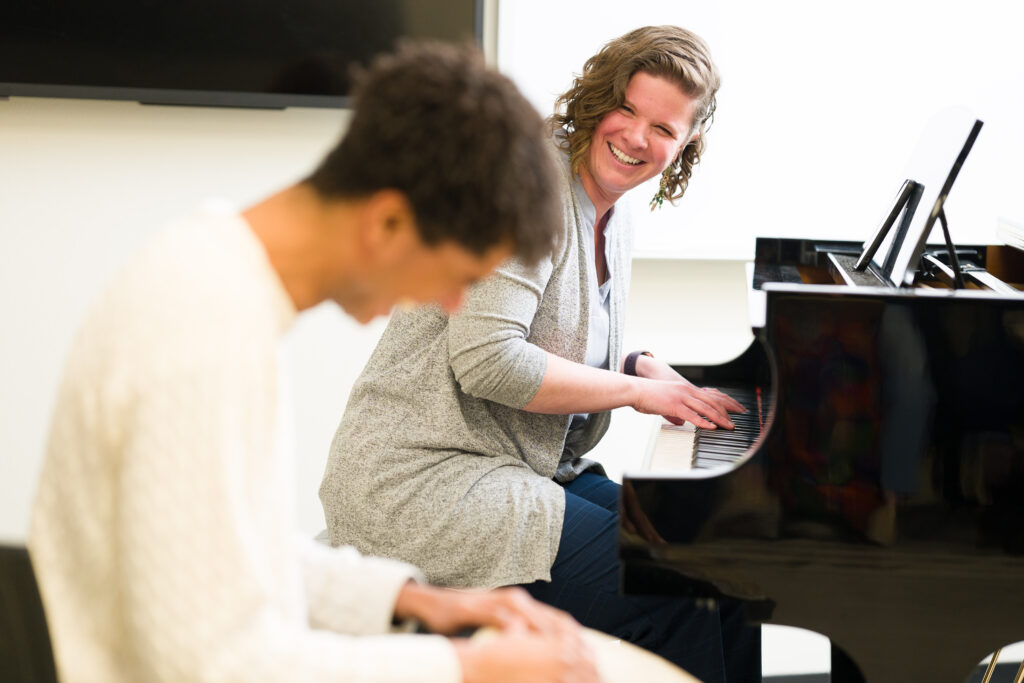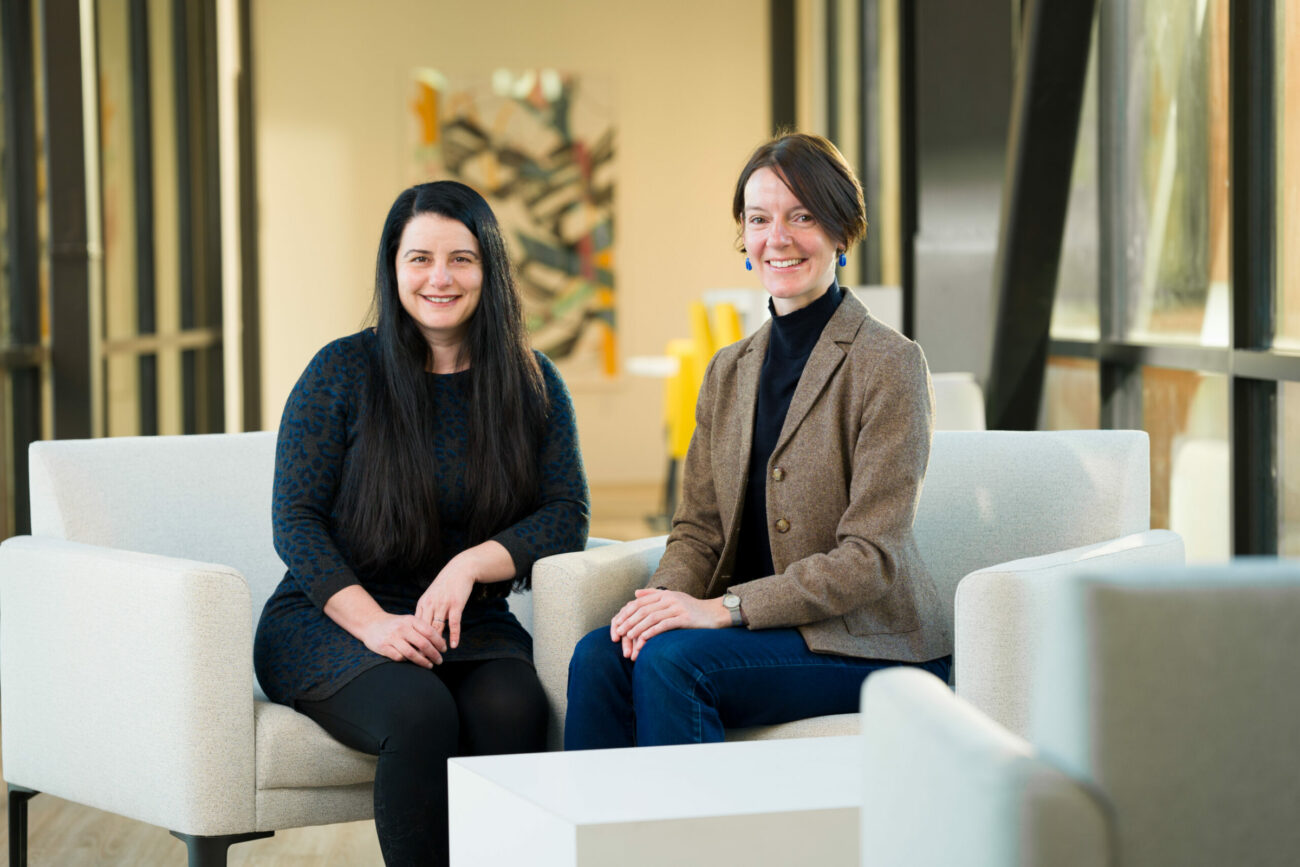MORE THAN TALK: MUSIC THERAPY SPEAKS BEYOND WORDS
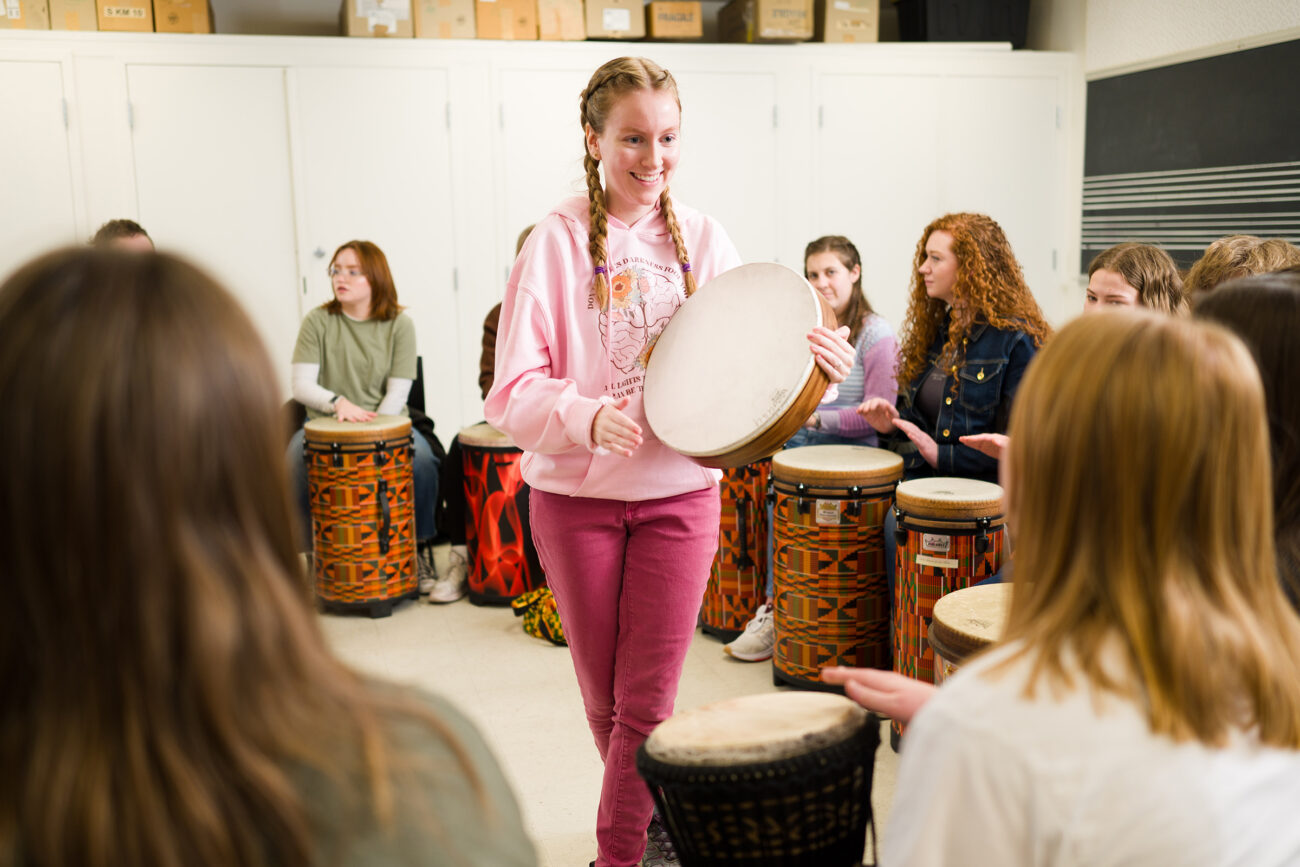
By Bryan Stalvey
As we explore mental health and the diverse options available in taking care of ourselves, music therapy offers a unique and effective evidence-based approach that stands out among other methods. With nearly five decades worth of experience, USU’s Department of Music continues to deliver the educational experience for students aiming to practice music therapy.
Corinne Pickett, a 2017 Utah State University graduate and now adjunct instructor, initially aspired to be a choir teacher before changing course due to the transformative potential of music therapy. While enrolled in USU’s music program, she found a fulfilling blend of musical passion with the ability to positively impact individuals in need.
“Music therapy provides a unique perspective, allowing you to witness the profound ways music influences and impacts individuals on a personal level,” Pickett says. “Through the process of self-expression, clients can gain insights into their emotions, navigate challenges, and find resilience in both the actions they take and the coping mechanisms found through music therapy.”
Extending far beyond individual narratives, the music therapy program at USU prioritizes equipping students with the skills and knowledge to deliver transformative interventions across diverse settings. Through evidence-based practices and community engagement, students gain real-world experience in hospitals, schools, and various therapeutic environments.
“We offer a competitive, resourceful, and motivating course of study that encourages excellence in a professional field,” remarks Dr. Maureen Hearns, the program’s director since 2004. “No one individually could achieve our collective success, but together we strengthen one another and create a unique program.”
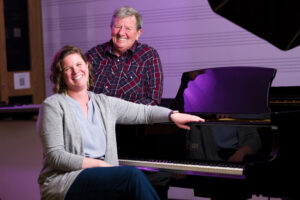
Hearns is an accomplished therapist, specializing in guided imagery and music. Her experience in working with survivors of domestic violence includes support for and participation in organizations such as CAPSA.
Clinical Assistant Professor Allison Fox, who has been with the USU music therapy program for five years, credits its success to the people involved as well as the program’s educational framework.
“I believe the effectiveness of the USU music therapy program can be attributed to its comprehensive curriculum, experiential learning opportunities, dedicated faculty, interdisciplinary approach, research and innovation, clinical supervision and mentorship, collaborative culture, and commitment to diversity and inclusion,” she says. “These factors combine to provide students with a high-quality education that prepares them for successful careers as future music therapists.”
While music therapy studies reside within the Department of Music in the Caine College of the Arts, it stands as a distinct bachelor’s professional degree program. It offers a unique avenue for students passionate about both music and healing arts, attracting individuals with an innate musical inclination and a desire to contribute to others’ well-being.
Hearns underscores the multifaceted significance of music therapy, from fostering community healing to facilitating individual transformation.
“A client might feel that music therapy was the important factor in giving definition to their life, enabling physical or mental process, maintaining a quality of life that had been compromised, or opening a door of transformation into a completely new way of being,” Hearns says.
In fact, interest in music therapy truly is growing. According to Globe Newswire the number of music therapy businesses in North America increased by 142% between 2017 and 2021.
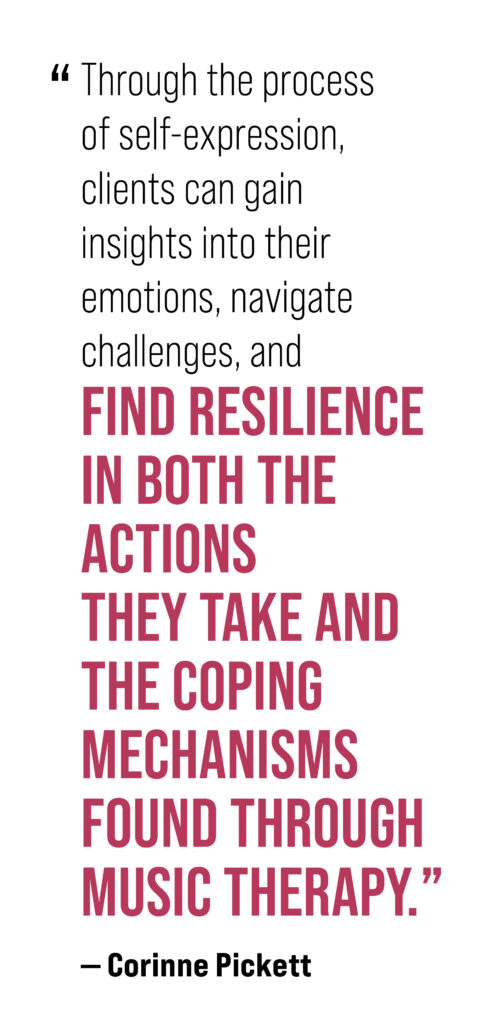
“Music therapists work with clients to develop individualized treatment plans that leverage music-based interventions tailored to assist clients in addressing a wide range of physical, emotional, cognitive, and social needs,” Fox says. “From prenatal care for expecting parents to end-of-life hospice and palliative care, music therapists offer their services across the entire spectrum of life’s journey.”
Not only is music therapy diverse in application, but the studies of this program at USU cover these topics while preparing students for board certification and jobs in the real world. Students receive hands-on clinical training with board-certified professionals in the field in diverse clinical settings.
“This practical experience is essential for building clinical skills, developing therapeutic relationships, and applying theoretical knowledge in real-world scenarios, which are crucial for success on the board certification exam and in professional practice,” Fox adds.
Music therapy’s effectiveness lies in its ability to harness the intrinsic therapeutic qualities of music. Through listening, writing, improvising, and using music in various ways, music therapists can help clients explore and evaluate their emotions in a less painful and potentially less direct way.
There are many forms of art therapy and expressive therapy — ways to dissect the inner human workings and process emotions, thoughts, and memories without talk therapy. Music therapy falls under expressive art therapy, deeply connected to our emotions and experiences.
“It’s a very different thing sitting down and talking face-to-face about your issues and walking through it,” Pickett explains. “This can be challenging for some people, but playing an instrument — beating a drum, improvising with a group, writing something that connects to your experience — is an entirely different form of vulnerability.”
